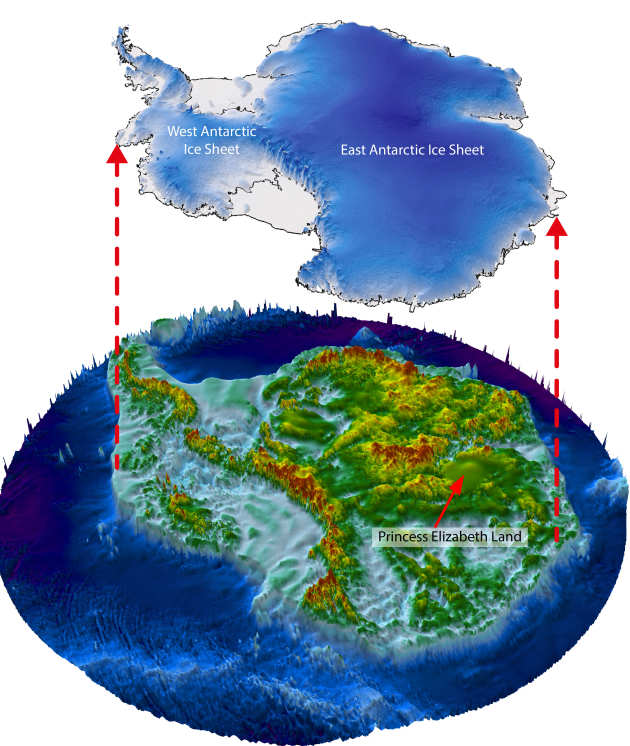
Understanding our planet’s environment
Antarctic ice plays a fundamental role in our planet’s environment, yet vast areas of East Antarctica remain unexplored and poorly understood.
The East Antarctic ice sheet contains 90% of all freshwater on the planet. If the whole ice sheet melted, sea levels around the world would rise by about 60 metres. Knowledge of the ice-sheet bed (the shape and features of the rock surface beneath the ice sheet) is critical to models of ice flow that allow us to predict future sea level change.
The ice sheet also influences how heat is distributed around the planet, affecting global temperatures. Melting ice dumps freshwater into the sea, playing an important role in ocean circulation patterns.

Discovering a new world
Antarctica is the last truly unexplored land mass on our planet - it is a place where discovery and curiosity feed our scientific search for knowledge.
Beneath the ice sheet lies a world apart from ours, involving interconnected lakes, rivers, mountains, sediments. ICECAP research has already identified what may be the world’s largest canyon and a massive lake hidden under the ice. Exploration of these systems is planned over the next twenty years.
Find out more
- How is ICECAP putting East Antarctica on the map?
- Publication: Sea level change - This briefing note examines how sea level has varied in the past, the influence of mechanisms including ice sheet melt, and how sea level is likely to change in future under climate change.